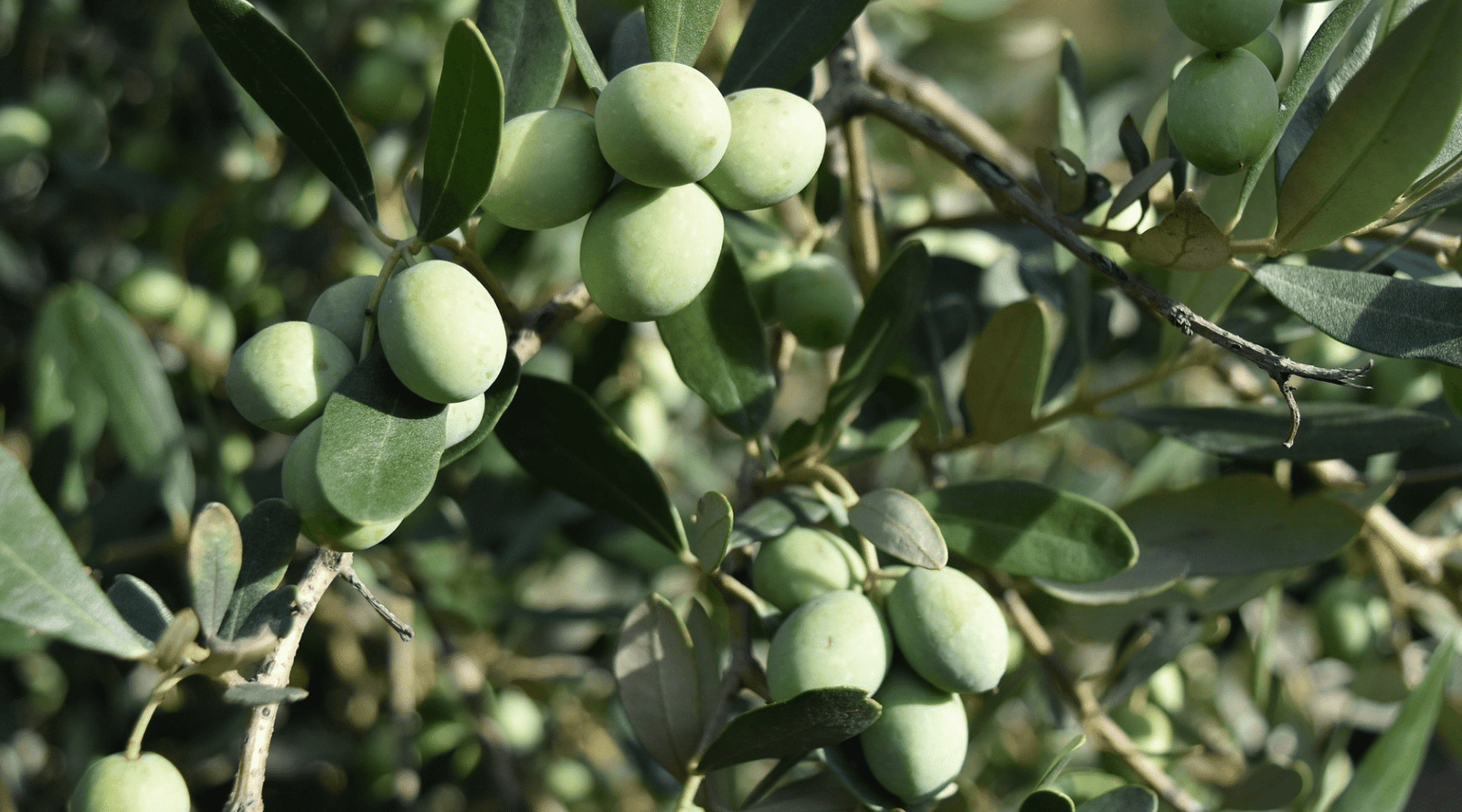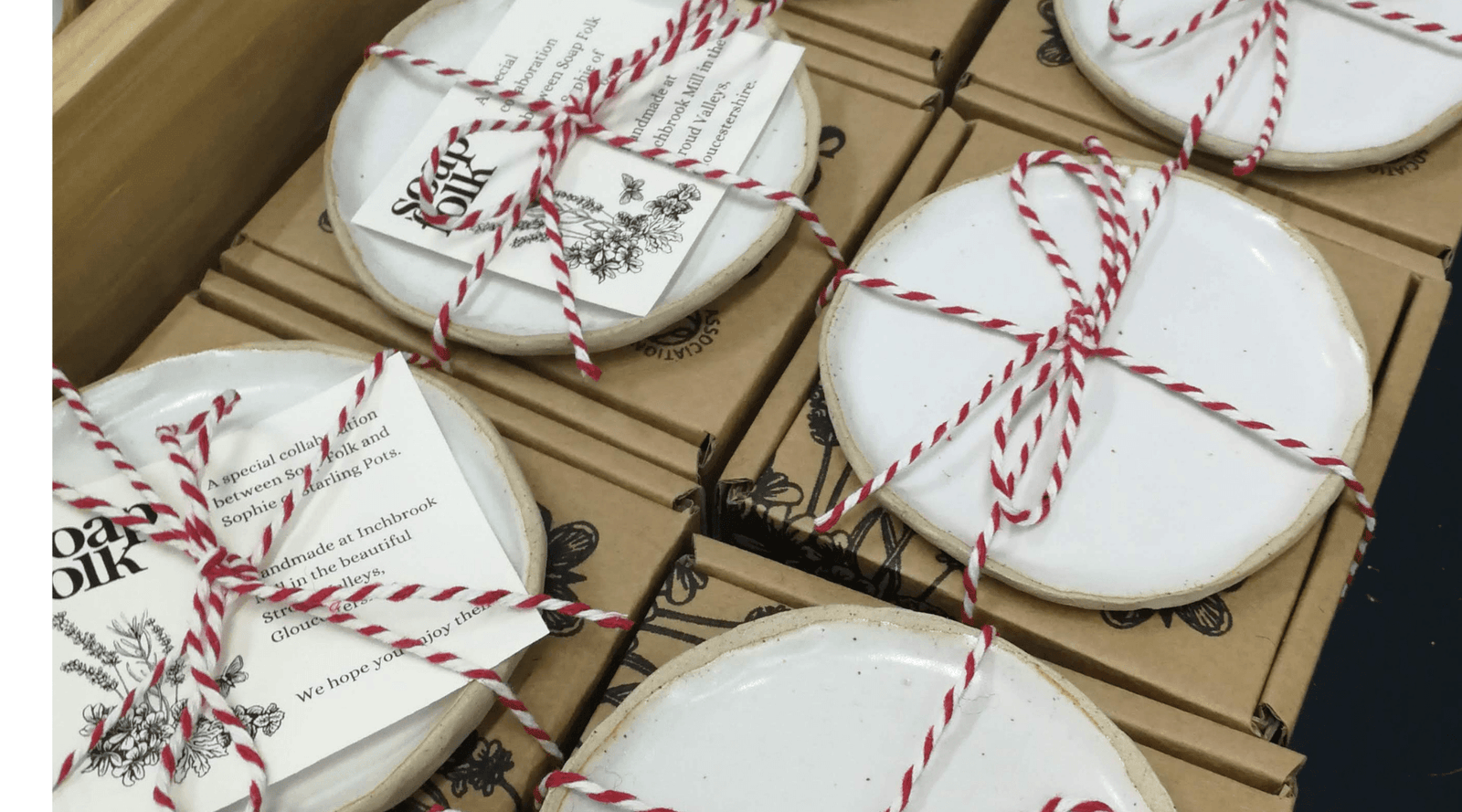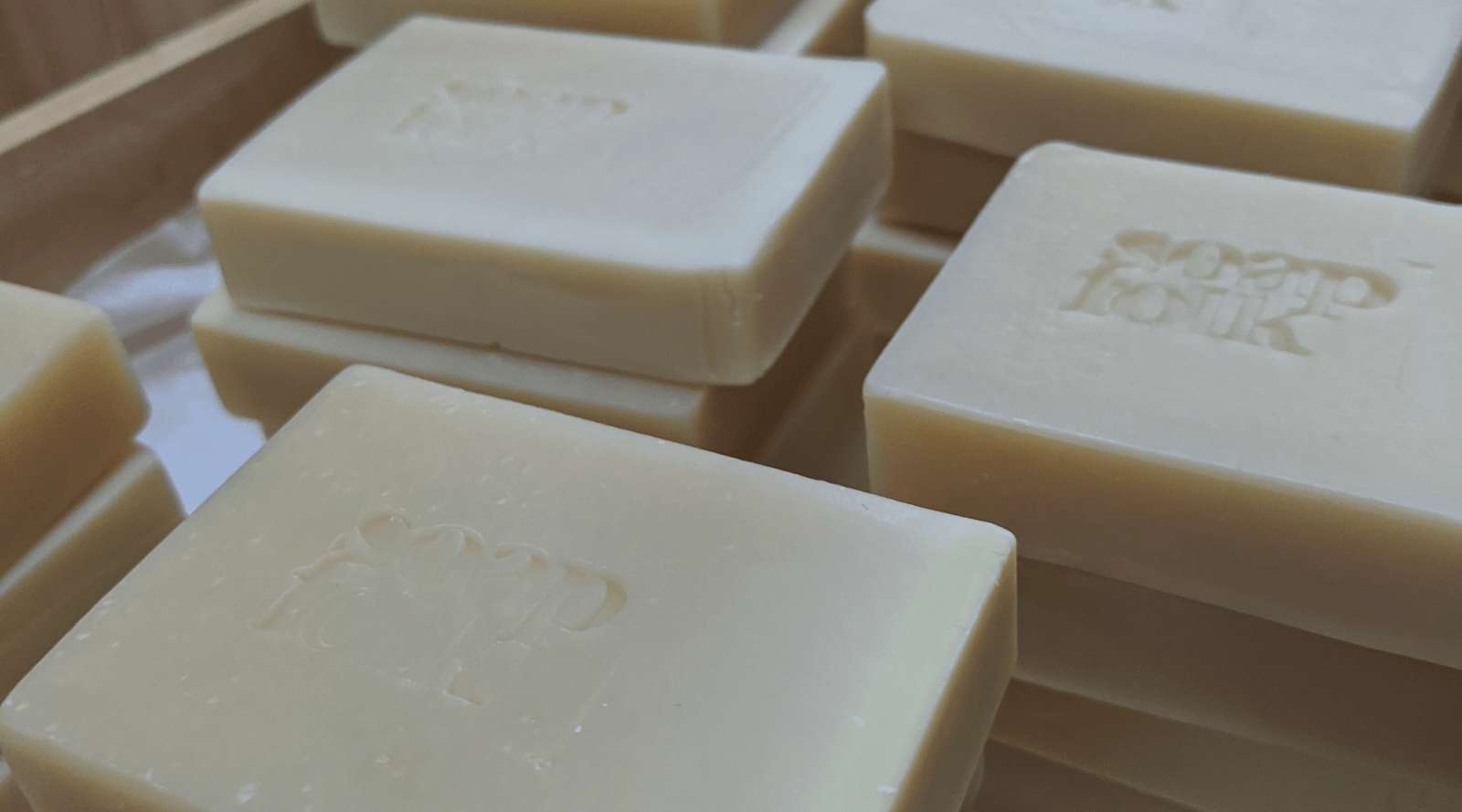Your Cart is Empty

by Fiona McBryde June 13, 2021 4 min read
Right at the heart of our natural soap bars is a generous glug of olive oil. Recent poor olive harvests have led to spiralling costs and the oil has become less popular in favour of cheaper ingredients like coconut oil and palm oil. For Soap Folk though, it’s our single favourite oil and the one we would struggle to give up. Find out why here.
Olive oil makes a hard, long lasting soap with a gentle cleansing lather, suitable for all skin types including sensitive skins. High in Oleic acid, a soap made with olive oil will help to condition and soften your skin.
Olive oil is most often blended with other oils and butters, each one bringing a slightly different property to create a balanced bar, with a rich creamy lather that cleanses without drying.
 A common blend of oils in soap. Working clockwise from top left, shea butter, sunflower seed oil, olive oil, cocoa butter
A common blend of oils in soap. Working clockwise from top left, shea butter, sunflower seed oil, olive oil, cocoa butter
Olive is one of the only oils which can be used as the single ingredient in soap. This type of soap made with 100% olive oil is traditionally known as a Castile soap It’s a labour of love to make as it needs several months to fully cure but it does create a beautifully gentle bar. It takes a little getting used to, as there is almost no lather and often described as "slimy". However converts to castile soap often find it hard to go back to any other kind of soap.
If you are not quite ready to take the plunge with a Castile soap, then Bastille is a great halfway house. With 70% olive oil, it will be a gentle soap but with a little more cleansing action and satisfying creamy lather.
Our calendula soap is a bastille bar; we use 70% olive oil infused with calendula, blended with coconut oil and cocoa butter.

Olive oil production gives back to the environment more than it takes. Well managed olive groves increase landscape and habitat diversity and protects the soil against erosion and desertification.
It’s been described as liquid gold helping to reduce greenhouse gas emissions, using the right farming techniques, olive orchards can be a CO2 sink.
With controversies surrounding palm and soya oil production, it’s important to us that we can support an industry that has the potential to improve our planet.
 Established Olive grove in Puglia, Italy
Established Olive grove in Puglia, Italy
Cold pressed means that no heat is used during the processing so that the oil retains more of its natural antioxidants. We think of it as an oil in its truest form. This precious oil is what we use in our leave-on skincare products such as oils and balms.
In soap making, Extra Virgin Olive oil brings its own set of challenges. As an unrefined oil, it can vary in scent and colur from batch to batch. We find this can affect the length of time a soap can take to cure, and the final colour of the soap.
Many soap makers use Pomace oil, a derivative of the olive industry. Pomace oil is made from from the pulp and waste of the olives after the first press is done creating Extra Virgin Olive oil. The advantage of pomace over unrefined Olive oil (other than cost) is that it’s an easier oil to work with; pale in colour and light in scent, it can create a good base for a wide range of soap colours.
There's a compelling argument that Pomace oil, as an upcycled ingredient, is actually more sustainable than refined olive oil in a rinse off product such as soap. However, it's not quite that straightfoward - the process extracting pomace can involve chemical solvents, such as Hexane, which is a very energy intensive process. It's important for soap makers to source pomace from sustainable producers where possible.
A very rough rule of thumb is that experienced handmade soap makers will prefer to use olive oil in their blends. Mass produced soap makers prefer to use low cost palm oil based blends or synthetic detergents such as Sodium Cocoyl Isethionate.
If you shop locally, you are more likely to find a handmade soap maker in an independent gift shop or on a farmers market. There are some long established olive oil soap producers in health food stores.
Check the ingredients on the back of the packet - olive oil often appears as its saponified name "sodium olivate" . Ingredients are listed in order of weight, so if olive oil appears at the top or near the top, then you will know this is in an olive oil rich soap.
Have you tried an olive oil based soap? And can you feel the difference? Do let us know!Comments will be approved before showing up.

by Fiona McBryde May 29, 2021 3 min read

by Fiona McBryde May 23, 2021 2 min read

by Fiona McBryde May 18, 2021 3 min read
Sign up to get the latest blogs, exclusive offers and giveaways